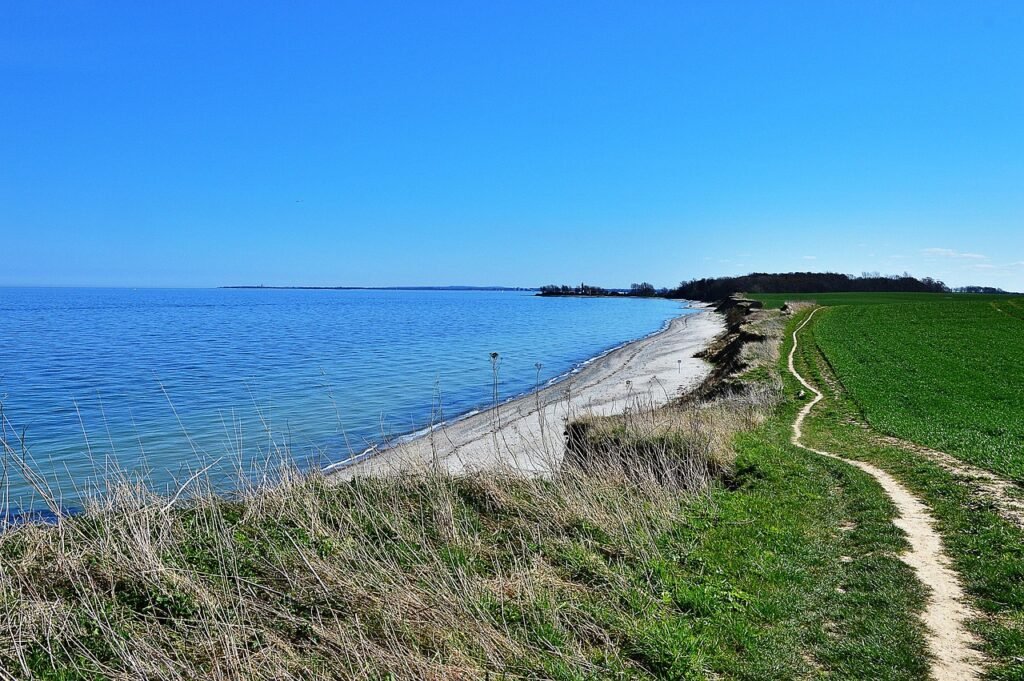Imagine sinking your toes into warm, golden sand, the rhythmic crash of waves serenading your senses, and the salty air kissing your skin. Beaches are more than just stretches of sand; they are havens for relaxation, adventure, and connection with nature. Whether you’re a sunbather, surfer, or simply seeking tranquility, the world’s coastlines offer a diverse tapestry of experiences. This guide dives into the allure of beaches, exploring their multifaceted appeal and offering insights for making the most of your next seaside escape.
The Allure of the Beach: Why We Love Them
Psychological Benefits of Beach Visits
Beaches offer a unique blend of sensory experiences that contribute to our well-being. The sounds of the ocean, the feel of the sand, and the vastness of the horizon all contribute to a sense of calm and relaxation.
- Stress Reduction: Studies have shown that the sound of waves can lower cortisol levels, reducing stress and anxiety.
- Improved Mood: Exposure to sunlight increases serotonin production, boosting mood and creating feelings of happiness.
- Enhanced Creativity: The open space and natural beauty of a beach can stimulate creativity and promote mindfulness.
Social and Recreational Opportunities
Beaches are ideal locations for social gatherings, family outings, and a wide range of recreational activities.
- Family Fun: Building sandcastles, playing beach volleyball, and splashing in the waves are classic beach activities for families.
- Water Sports: Surfing, swimming, snorkeling, kayaking, and paddleboarding are just a few of the water sports that can be enjoyed at beaches.
- Socializing: Beaches provide opportunities to meet new people, connect with friends, and enjoy community events.
Types of Beaches: A World of Diversity
Sandy Beaches
Sandy beaches are the most popular type, characterized by their soft, granular sand composed of minerals like quartz and feldspar.
- White Sand Beaches: Found in tropical regions, these beaches are known for their pristine white sand, often derived from coral. Example: Whitehaven Beach, Australia.
- Golden Sand Beaches: Common in temperate climates, these beaches have sand with a yellow or golden hue, due to iron oxide. Example: Copacabana Beach, Brazil.
- Black Sand Beaches: Formed from volcanic activity, these beaches have dark sand composed of basalt fragments. Example: Punalu’u Black Sand Beach, Hawaii.
Pebble and Rocky Beaches
Pebble and rocky beaches feature larger stones and rocks instead of sand, offering a different kind of coastal experience.
- Unique Landscapes: These beaches often have dramatic geological formations and tidal pools, providing opportunities for exploration and discovery.
- Less Crowded: Pebble and rocky beaches tend to be less crowded than sandy beaches, offering a more secluded and peaceful experience.
- Wildlife Viewing: Rocky beaches are often home to diverse marine life, including seabirds, seals, and tide pool creatures.
Shell Beaches
Shell beaches are formed when large quantities of seashells are deposited by currents and tides, creating unique and picturesque landscapes.
- Unique Aesthetics: Shell beaches are visually striking, with colorful seashells creating intricate patterns and textures.
- Natural History: These beaches offer a glimpse into the history of marine life, with shells providing insights into past ecosystems.
- Collecting Treasures: Many visitors enjoy collecting shells as souvenirs, but it’s important to check local regulations regarding shell collecting.
Beach Activities: Fun for Everyone
Water Sports and Recreation
The ocean offers a playground of opportunities for water-based activities.
- Surfing: Ride the waves and experience the thrill of surfing. Popular surfing destinations include Bali, Hawaii, and California.
- Swimming: Enjoy a refreshing dip in the ocean, whether it’s leisurely swimming or more vigorous workouts. Always be mindful of currents and tides.
- Snorkeling and Scuba Diving: Explore the underwater world, discovering colorful coral reefs and marine life. Locations like the Great Barrier Reef and the Maldives offer incredible diving experiences.
- Kayaking and Paddleboarding: Paddle along the coastline, enjoying the scenery and getting a great workout.
Relaxation and Sunbathing
For those seeking relaxation, beaches offer the perfect setting to unwind and soak up the sun.
- Sunbathing: Lounge on the sand, read a book, and enjoy the warmth of the sun. Remember to apply sunscreen regularly to protect your skin.
- Beachcombing: Stroll along the shore, searching for seashells, sea glass, and other treasures washed up by the tide.
- Meditation and Yoga: Practice mindfulness and connect with nature through meditation or yoga on the beach.
Beach Games and Activities
Beaches are ideal for playing games and engaging in recreational activities with friends and family.
- Beach Volleyball: Organize a friendly game of beach volleyball.
- Frisbee: Toss a Frisbee around on the sand.
- Sandcastle Building: Create elaborate sandcastles.
Beach Safety: Protecting Yourself and the Environment
Understanding Ocean Hazards
The ocean can be unpredictable, so it’s important to be aware of potential hazards.
- Rip Currents: Strong, narrow currents that flow away from the shore. If caught in a rip current, swim parallel to the shore until you are out of the current, then swim back to shore.
- Tides: The rise and fall of sea levels, which can affect swimming conditions and access to certain areas. Check tide charts before visiting the beach.
- Marine Life: Be aware of potentially dangerous marine life, such as jellyfish, stingrays, and sharks.
Sun Protection and Hydration
Protecting yourself from the sun is crucial for preventing sunburn and skin damage.
- Sunscreen: Apply broad-spectrum sunscreen with an SPF of 30 or higher, and reapply every two hours, or more often if swimming or sweating.
- Hats and Sunglasses: Wear a wide-brimmed hat and sunglasses to protect your face and eyes from the sun.
- Hydration: Drink plenty of water to stay hydrated, especially on hot days.
Environmental Responsibility
Protecting the beach environment is essential for preserving its beauty and ensuring its sustainability.
- Leave No Trace: Pack out everything you pack in, and dispose of trash properly.
- Respect Wildlife: Avoid disturbing marine life, and do not feed wild animals.
- Reduce Plastic Use: Bring reusable water bottles, shopping bags, and food containers to reduce plastic waste.
Finding Your Perfect Beach: Tips and Resources
Online Resources and Beach Guides
Numerous websites and apps provide information on beaches around the world.
- TripAdvisor: Offers reviews, photos, and ratings of beaches.
- BeachHunter.net: Specializes in Florida beaches.
- Local Tourism Websites: Provide information on local beaches, including amenities, activities, and safety guidelines.
Considering Your Preferences
When choosing a beach, consider your personal preferences and priorities.
- Crowds: Do you prefer a secluded beach or a lively, crowded one?
- Activities: Are you interested in water sports, sunbathing, or exploring tide pools?
- Amenities: Do you need access to restrooms, showers, and food vendors?
Travel Tips for Beach Vacations
Planning ahead can help you have a smooth and enjoyable beach vacation.
- Book Accommodations in Advance: Especially during peak season.
- Pack Appropriately: Bring sunscreen, hats, sunglasses, swimsuits, towels, and beach shoes.
- Check the Weather Forecast: Before you go.
Conclusion
Beaches offer a unique combination of relaxation, recreation, and connection with nature. From the psychological benefits of the ocean’s sound to the thrill of water sports and the simple joy of building sandcastles, there’s something for everyone at the beach. By understanding the different types of beaches, practicing beach safety, and being mindful of the environment, you can make the most of your next seaside escape. So, pack your bags, grab your sunscreen, and get ready to experience the magic of the beach!

